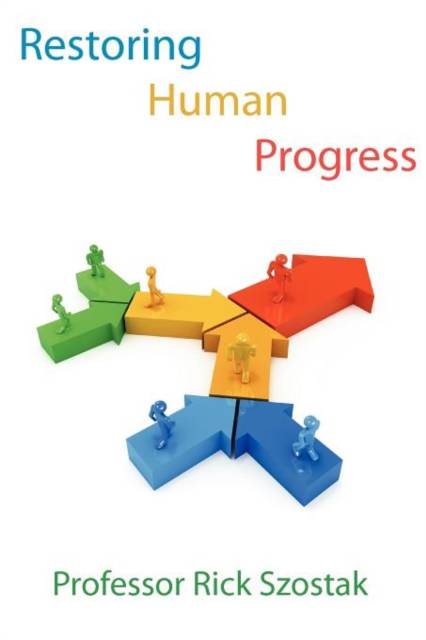
- Retrait gratuit dans votre magasin Club
- 7.000.000 titres dans notre catalogue
- Payer en toute sécurité
- Toujours un magasin près de chez vous
- Retrait gratuit dans votre magasin Club
- 7.000.0000 titres dans notre catalogue
- Payer en toute sécurité
- Toujours un magasin près de chez vous
Description
Is human progress possible? If so, how can it be achieved? Many progressive intellectuals and activists once turned to socialism for answers to both questions, but such individuals generally now appreciate that the answers provided were simplistic and misguided in important respects. Many have thus embraced nihilism, doubting that human progress is achievable or even conceivable. Such individuals then necessarily turn away from efforts to create a better world. The world would benefit from the outline of a coherent program for human progress that manages to escape the simplifications inevitable in adherence to one narrow ideological perspective. This book aims to describe such a program. Some elements of this program are concrete enough for activists to advocate immediately. In other cases there is much work for intellectuals to do in further clarifying the best policies for a society to undertake. This book is intended to revitalize the efforts of both intellectuals and activists. Whereas a generation or two ago there was widespread confidence that economic growth, technological advance, and/or the spread of democracy would gradually create a better world, many today fear that these processes generate more problems than they solve. This skepticism regarding the possibility of progress is closely associated with three other attitudes. There is widespread doubt, at least among the intellectual class, that human reason and ingenuity can solve the world's problems. This doubt is related to a concern that the contemporary world is too complex and unpredictable for purposeful human action to have much impact on the future course of events. Finally, there is doubt that there are universal ethical standards: if humanity cannot agree on what is the nature of the good life, we can hardly work toward progress nor recognize it if we achieve it. This book starts from a belief that there is considerable merit in these four related concerns. However, it will be argued that they need not lead to despair: the idea of human progress is still viable, though progress is not inevitable. This book will therefore outline a variety of goals for both activists and intellectuals to pursue in order to generate a progressive future for humanity. The legitimate concerns noted above regarding complexity, ethics, and the exercise of reason must first be addressed; it will turn out that answers to these three critiques will provide coherence to the various reform initiatives to be outlined. Firstly, a universal ethics can (ironically) be grounded in diversity by appreciating that diverse ethical perspectives often point in the same direction. This book identifies five types of ethical analysis and an 'ethical core' of statements supported by each of these. Secondly, complexity can be coped with in both scholarship and public policy analysis through the pursuit of interdisciplinarity and by organizing human understanding in terms of exhaustive classifications of the phenomena studied and theories and methods applied. These classifications are provided, as is a best-practice process of interdisciplinary analysis. Finally, the role of reason in human affairs can be enhanced by identifying and pursuing higher standards of human discourse.
Spécifications
Parties prenantes
- Auteur(s) :
- Editeur:
Contenu
- Nombre de pages :
- 626
- Langue:
- Anglais
Caractéristiques
- EAN:
- 9781907962707
- Date de parution :
- 01-02-12
- Format:
- Livre broché
- Format numérique:
- Trade paperback (VS)
- Dimensions :
- 156 mm x 234 mm
- Poids :
- 861 g

Les avis
Nous publions uniquement les avis qui respectent les conditions requises. Consultez nos conditions pour les avis.






